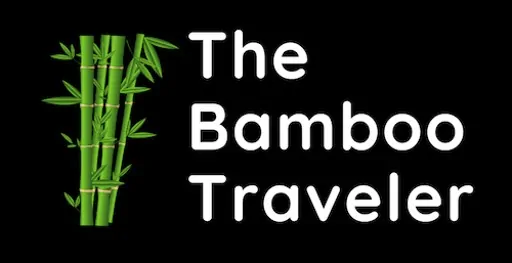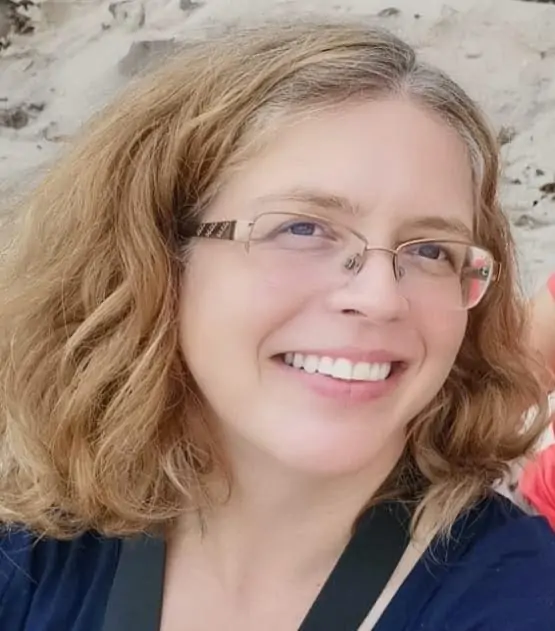Books on Chinese-American Culture
Interior Chinatown
By Charles Yu, 2020
My Rating: 5 out of 5 Stars
“Who gets to be an American? What does an American look like?”
Disclosure: This post may contain affiliate links. As an Amazon Associate and a Bookshop.org Associate, I earn from qualifying purchases. Please see this website’s Disclosure for more info.
Wow! What an incredibly clever, funny, and thought-provoking book!
Sometimes clever, gimmicky books come across as pretentious bores (George Saunders – Lincoln in the Bardo). But there are other times when they just work perfectly. Without their gimmicky features, they just wouldn’t be as damn good. Luckily, Interior Chinatown (AMAZON | BOOKSHOP.ORG) is the latter.
Oh and by the way, his book won the National Book Award for best fiction of 2020. Another reason to read it.
Charles Yu has a lot to say in this book about stereotypes of Chinese-Americans, Hollywood type-casting, and identity. If he hadn’t structured the book in the way he did, it might have come off as preachy. It didn’t. It’s sarcastic more than preachy.
What’s so gimmicky about Interior Chinatown?
The story is told in the format of a screenplay. The dialogue is formatted like a script. “Interior Chinatown” is the same phrase used in a script to describe the location of a movie or tv show in Chinatown. Even the typewriter-like font resembles a script.
The book partly takes place on a television set. Sometimes the story is told while scenes are being shot and sometimes between scenes. However, you never know when the television show starts and ends and real life begins. Is what is happening part of the script? Is it all in the character’s head? Is what is happening between scenes or is it the scene itself?
I should probably start by telling you the synopsis before going much further so you can see what I mean.
Willis Wu is a struggling actor. Born in the United States; he doesn’t speak Chinese all that well. As a Chinese-American male, the only roles he can get are ones that typecast his ethnicity—restaurant worker, Chinese delivery boy, filial son. Any role as a Generic Asian Man. None of the roles he can get go beyond his ethnicity.
The one role he strives for more than anything else is Kungfu man. Not romantic leading man or international spy hero or heroic lawyer or police officer or soldier. But another side character, Kungfu man. The irony here is that while he laments about all the typecasting that Hollywood does, he’s choosing one of the most stereotypical roles to strive for.
Willis gets parts on a tv show called Black and White about two cops—one is a Black man and the other a White woman. I guess it’s supposed to show how diverse Hollywood is. The irony is that Hollywood isn’t diverse if all they manage is to only give two ethnic groups leading roles. East Asians, South Asians, Middle Easterners, and Latinos be damned!
The television show often takes place in a Chinese restaurant with a rolling carousel of names “Golden Palace” “Golden Dragon” and so on.
Willis’s father is also an actor who plays dead-end roles in these shows. At least, I think. The thing is that you’re never really sure when the tv show ends and reality begins. Does Willis really work as a waiter in the restaurant or is he playing a role in a tv show? Maybe I wasn’t smart enough to figure it out or maybe it was because I was listening to an audiobook. At times I had a hard time figuring out what’s reality and what’s in Willis’s head. But this didn’t frustrate me so much as it wanted me to listen harder.
Willis lives above a Chinese restaurant in an apartment building called Chinatown SRO. Not being from New York, I at first had no idea what an SRO was. Wikipedia was nice enough to tell me that SRO stands for “Single Residence Occupancy.” I guess it’s a place where immigrants from China, Taiwan, Vietnam, Korea, etc. live when they first arrive in the States. Willis and his family still live in an SRO—indicative of their lack of success, I guess. Everyone seems to know each other and look out for each other. There are lots of things going wrong with the place—ceilings that are dripping water from the apartment above, lots of noise coming from the floors below and above, etc. Everyone seems to know everyone else’s business. The descriptions are vivid enough that you feel like you’re there with Willis as he runs into his aging mother in the hallway or as he lies on his bed and water seeps through the ceiling down on him from the apartment above.
Another theme of the book is dealing with aging parents. His father and mother are getting old. Willis deals with them with a mixture of sadness and bitterness.
I think anyone with an aging parent can understand the sadness part. He expresses perfectly that feeling when your parent no longer acts like a parent but instead like a helpless and irrational child:
“He’d always be Your Father, but somehow was no longer your dad.”
The bitterness comes from the fact that his father has been in the United States for 40+ years and speaks English like someone born in the United States—no foreign accent. Yet he is still seen as a foreigner. The only parts he can get are the ones where he’s required to speak with a Chinese accent. He’s never seen by Hollywood as more than beyond his foreignness.
Willis asks himself whether by accepting these stereotypical roles he is just keeping the system alive rather than trying to change it.
I’m a white middle-aged woman. So why do I care about this book so much At one time I was married to someone from China. Like most couples, we wanted children. I remember being back in the United States after living in China and Korea for many years and noticing how there were no actors on television or movies beyond Jackie Chan or singers who were Asian (this was in the early 2000s). I worried about what it would be like for my child, who would be half-Chinese, to grow up in a culture where no one on television or in the movies or on the stage looked like her or him. Do I want to raise my child in a country where people like her wouldn’t count?
This is one of my favorite books of the year. I’m so glad it received the National Book Award for fiction. If you have a chance, read it. It’s a short read at 288 pages.
Want to support your local bookshop? Check out the website, Bookshop.org. Bookshop.org’s mission is to support local, independent bookstores. Local stores that sell online through Bookshop.org receive 30% of the cover price on any sale they generate. In addition, 10% of every sale through Bookshop.org goes toward an earning pool that is distributed to independent bookshops every six months. You can order book print books, audiobooks, and ebooks. Bookshop.org only ships to customers in the United States. Visit my own Bookshop.org Store Page for more book ideas.
About the Author
Charles Yu has written four books and has written for the HBO series, Westworld. Before working as a writer full-time, he was a corporate lawyer. To get more insight into his reasons behind writing Interior Chinatown, I highly recommend watching his interview with Trevor Noah. The New York Times also has an interesting interview with him in By the Book. You can visit his website and get more insights.
Favorite Quotes
“As, everyone knows, water hates poor people. Given the opportunity, water will always find a way to make poor people miserable, typically at the worst time possible.”
“This is it. The root of it all. The real history of yellow people in America. Two hundred years of being perpetual foreigners.”
“But at the same time, I’m guilty, too. Guilty of playing this role. Letting it define me. Internalizing the role so completely that I’ve lost track of where reality starts and the performance begins. And letting that define how I see other people. I’m as guilty of it as anyone. Fetishizing Black people and their coolness. Romanticizing White women. Wishing I were a White man. Putting myself into this category.”
“He’d always be Your Father, but somehow was no longer your dad.”
“Unofficially, we understood. There was a ceiling. Always had been, always would be. Even for him. Even for our hero, there were limits to the dream of assimilation, to how far any of you could make your way into the world of Black and White.”
“You wish your face was more—more, something. You don’t know what. Maybe not more. Less. Less flat. Less delicate. More rugged. Your jawline more defined. This face that feels like a mask, that has never felt quite right on you. That reminds you, at odd times, and often after two to four drinks, that you’re Asian. You are Asian! Your brain forgets sometimes. But then your face reminds you.”
“He is asking to be treated like an American. A real american. Cuz honestly, when you think about American, what color do you see? white? black? We (the Chinese) have been here 200 years….the German, the Dutch, the Italian, they came here in the turn of century; they are Americans. Why doesn’t this face (“yellow”) register as American? Is it because we make the story too complicated?”
More Posts on Chinese History and Culture
- A great way to start learning about the history and culture of China is with a list of my favorite non-fiction books on China
- Read my book review of Roselle Lim’s first book on San Francisco’s Chinatown, Natalie Tan’s Book of Luck and Fortune – Book Review
My Favorite Books on Chinese-American Culture
- Everything Here is Beautiful – By Mira Lee (AMAZON | BOOKSHOP.ORG)
- On Gold Mountain – By Lisa See (AMAZON | BOOKSHOP.ORG)
- Dreams of Joy – By Lisa See (AMAZON | BOOKSHOP.ORG)
- Chemistry – By Weike Wang (AMAZON | BOOKSHOP.ORG)
- The Hundred Secret Senses – By Amy Tam (AMAZON | BOOKSHOP.ORG)
- The Kitchen God’s Wife – By Amy Tam (AMAZON | BOOKSHOP.ORG)
Get FREE trials of my favorite Amazon products:
- Kindle Unlimited – I have a subscription to Kindle Unlimited just for all the free Lonely Planet guidebooks. You get FREE books and magazines including Lonely Planet books with a 1-month FREE trial.
- Audible – Audible is amazing for those who need something to listen to while going for long walks. You get 2 FREE books with a FREE one-month trial.
- Amazon Prime 30-Day FREE Trial – I was an Amazon Prime Member for years (I’m traveling full-time now so it’s not so useful). I loved its free shipping and its Amazon Prime movies and TV shows (Mrs. Maisel, Bosch, and Expanse).
- Prime Student 6-month FREE Trial – If you have a university email account, you can get an even better deal with a FREE 6-month trial of Amazon Prime.






0 Comments